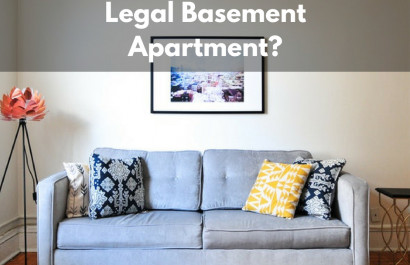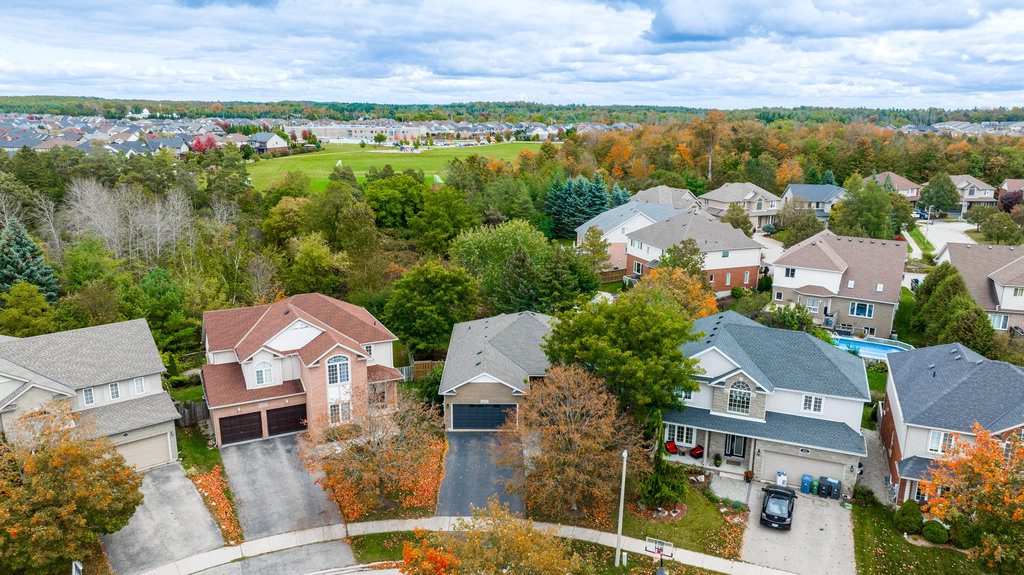Buying and owning a freehold home in Milton can be expensive. And prices continue to climb, making it more and more expensive to get into the real estate market in Milton. That’s the reason why many residents are choosing to rent because coming up with the money to buy a home can be pretty tough.
But what if you not only own your home but became a landlord too? Instead of being a tenant yourself, why not open up your home to tenants? That way you can take advantage of passive income, allowing the rent you collect to help pay down your mortgage and contribute to your carrying costs!
The most logical way to rent out part of your home would be to rent out the basement. But what if your home doesn’t already have a finished basement apartment? Or what if it does, but it’s not exactly up to code? What are the legalities surrounding basement apartments and how can you create one that’s suitable to be rented out?
Creating a Basement Apartment in Your Home
The Town of Milton allows second suites in detached homes for owners to collect rent. But these suites are subject to many by-laws and rules that landlords must follow.
By definition, a second suite a self-contained unit that must meet specific zoning, occupancy, fire, health and safety, and electrical standards before it’s considered a legal apartment.”
To make sure your basement apartment is legal, there are a number of things you will need to do. For starters, it’s important that you apply for a building permit with the Town and make sure that all inspections are passed and in compliance with building codes. Then, you will be obligated to comply with all zoning by-laws.
All safety codes will need to be met by an inspection from the Electrical Safety Authority. Things such as grounded electrical plugs, GFCI bathroom plugs, and main electrical service will be inspected to make sure they are all in good operating condition. Fire safety standards such as installed and working smoke alarms, appropriate fire separation between units, and adequate means of “egress” (escape) will also need to be met.
When building a basement apartment in your home, there are several requirements that need to be met, including the following:
- The home must be Detached, currently Semi-Detached and Townhouses cannot have a legal Accessory Apartment
- Must have a separate, private entrance
- The home must have 3 legal parking spaces, this can include a garage parking space
- The Apartment can be no larger than 85 sq m or 915 sq ft in floor area
- The home must have a walkout egress or window egress with a minimum 3.8 sf clear opening
- 45 min floor and wall fire separation (older buildings have different requirements)
- Ceiling height 6′ 11″ (2.11 m), 6’5″ under beams
- Natural Light 10% in Living and Dining Rooms; 5% in Bedrooms and other rooms
- Minimum room sizes and door widths/height apply
- Must have laundry facilities, shared access or connections within the unit
- All required Permits and Inspections must be completed
- Keep in mind, Homes with an existing finished basement, that are over 5 years may have different requirements and may have some issues “grandfathered in”. This simply means that the Town will approve some features because they are to the code at the time they were installed.
Considering all the rules that must be adhered to, it makes sense to obtain a building permit to help ensure that the construction of the suite meets all criteria to be deemed legal. If not, you could be in a precarious legal and financial situation.
It is essential to remember that these bylaws are not exhaustive and are set by each town and City, so rules in other areas may differ significantly
➣ Click here to learn about how home renovations affect your home value
Buying a Home With a Basement Suite
There are many homes on the market that advertise basement suites and are targeted to those who are looking for extra income in the form of rent. But it’s crucial to ensure that the basement apartment is legal before you agree to purchase the home.
Many sellers of homes such as these may have wording in their listings along the lines of “Seller and Agent do not warrant retrofit of a basement apartment.” This means that they do not promise that any part of the basement apartment is legal. In fact, it’s estimated that the MAJORITY of basement suites are not legal in the GTA. In this case, it’s up to the buyer to determine whether or not to move forward with using the apartment as a rental unit.
Failure to ensure that the suite is legal before renting it out can cost you. Your tenant, a neighbour, or anyone else can put in a request to have the Town inspect the unit to make sure it’s up to par. If it isn’t, you may be required to spend the money to upgrade the suite or even convert your home back to a single-family house.
You may also find yourself struggling to get your property insured. Insurance providers need to know exactly what’s happening in a home, including the presence or condition of a basement suite.
Perhaps the worst-case scenario is if there is an injury in the basement suite as a result of an electrical hazard or fire. If the reason for such an incident is because the unit did not meet building standards, you could be sued.
Before you agree to buy a home with a basement suite, be sure to have it inspected to verify whether or not it is legal. If it is, great. If not, you need to weigh the pros and cons of having this basement apartment.
Whatever choice you make, be sure to work with a seasoned real estate team that understands all the ins and outs of the legalities and requirements for basement apartments.
➣ Click here to learn about the benefits of working with a qualified REALTOR®
Here is a LINK to the Town’s guide to basement apartments.
➣ For more buyer resources read:
Reach out today to see how we can help!
Do You Have Questions About The Milton Real Estate Market?
Reach out learn more about the local market—and how we can help!



